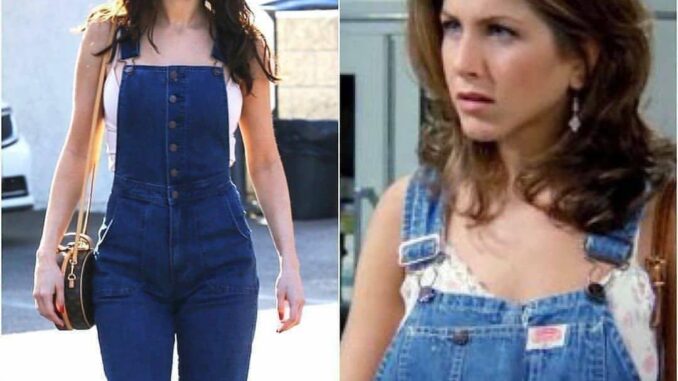
Selena Gomez, with her multifaceted talent as a singer, actress, and producer, embodies a modern Rachel Green.
Like Rachel, Gomez has navigated her share of personal challenges, including struggles with anxiety and lupus, which could add layers of depth to the character. Imagine Rachel Green not just as a fashionable barista who dreams of high fashion, but as an advocate for mental health awareness, using her platform to discuss the importance of self-care and support—something that resonates deeply with today’s audiences.
Fashion has always been a crucial element of Rachel’s character. From her iconic 90s hairstyles to her chic work attire, Rachel’s wardrobe was a reflection of her evolution. Under Selena’s portrayal, Rachel could modernize these styles while still paying homage to the original. We could expect a fusion of vintage 90s vibes with contemporary trends, showcasing Selena’s flair for fashion as she navigates the ever-changing landscape of the fashion industry.
Additionally, Selena’s influence as a style icon would likely bring a fresh perspective to the character’s fashion choices, incorporating sustainable brands and diverse designers, thus reflecting the current cultural emphasis on sustainability and inclusivity in fashion. The heart of Friends lies in the intricate relationships among the characters, and Selena’s Rachel would undoubtedly bring her own unique flair to these dynamics. Her chemistry with characters like Ross, Monica, and Phoebe could manifest in a more nuanced exploration of friendship and romance.

Selena’s own experiences with relationships could enrich her portrayal of Rachel’s romantic entanglements, possibly bringing a more contemporary understanding of love, heartbreak, and growth. She could tackle issues such as the balance between career ambitions and personal relationships, a theme that resonates with many young adults today. Selena Gomez’s casting as Rachel Green would also signify a shift towards greater representation in media. As a Latina actress in a role that was originally played by a white actress, this casting choice would not only modernize the character but also provide a vital opportunity for broader cultural representation on television.
This shift would pave the way for conversations about diversity and inclusion in Hollywood, showing how beloved characters can transcend their original contexts and be reinterpreted in ways that reflect our diverse society. Selena’s portrayal could inspire a new generation of viewers, encouraging them to embrace their identities while still finding relatability in classic characters.
Imagining Selena Gomez as Rachel Green opens up a world of possibilities for storytelling, representation, and cultural dialogue. Through her portrayal, we could witness the evolution of a character who not only captures the essence of Rachel’s charm and ambition but also addresses contemporary issues that resonate with today’s audience. Selena’s Rachel would be a celebration of growth, fashion, and friendship—an emblem of how beloved stories can be reimagined to inspire and connect with future generations.
